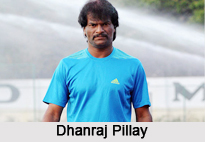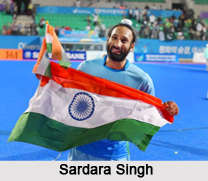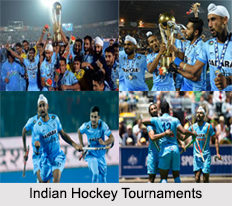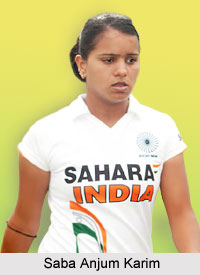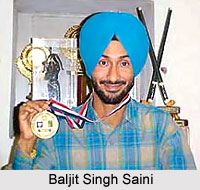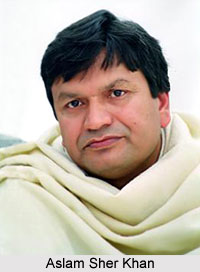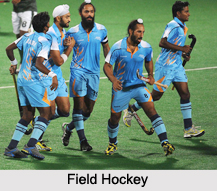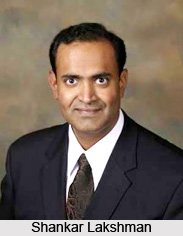 The former Indian hockey player Charles Cornelius had once said of him " Lakshman was among the game`s greatest. He was an epitome of courage and a role model for others of his ilk. Unfazed by any situation, Shankar Lakshman had the ability to defuse any crisis. His team-mates were at a loss to know how his pads grew broader and broader as the contest wore on." Shankar Lakshman, an Indian hockey player was born on 7th July in the year 1933.
The former Indian hockey player Charles Cornelius had once said of him " Lakshman was among the game`s greatest. He was an epitome of courage and a role model for others of his ilk. Unfazed by any situation, Shankar Lakshman had the ability to defuse any crisis. His team-mates were at a loss to know how his pads grew broader and broader as the contest wore on." Shankar Lakshman, an Indian hockey player was born on 7th July in the year 1933.
The Indian National team which had played in the Olympics in the year 1956, 1960 and 1964, Shankar Lakshman has served as the goalkeeper for the Indian team. In the Olympics, the Indian National Team won two gold medals and one silver medal. Under his captaincy, the Indian team also won the gold in the 1966 Asian Games.
He played hockey at a time when as a protective gear, the goalkeeper were provided only the pads. The Rock of Gibraltar, as his opponents called him, the manager of the silver medal winning Pakistani hockey team of the `64 Tokyo Olympics quoted that `Shankar Lakshman was the sole obstacle between the Pakistani team and the gold medal`. He was the first goalkeeper captain in the world. In the 1964 Hockey finals against Pakistan while referring to his performance in Tokyo the Australian Hockey magazine Hockey Circle had said, "...for Lakshman, the ball was the size of a football. It was his afternoon of glory and fame. "
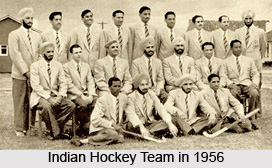 Sports career of Shankar Lakshman had begun as a footballer. This former captain of the football team of Kodaria village in Mhow, switched over to hockey only after he joined the Army. To disseminate hockey, Heroes Club had been founded by him in Mhow. Mhow`s best football club, Young Brothers also benefited from his expertise. Under his guidance as coach Indian National Hockey team participated to the Barcelona Olympics of 1992. Manohar Singh, son of Shankar Lakshman was also a hockey player and had played for Indore Christian College and the University of Indore (as Devi Ahilya Vishwavidyalaya was known earlier). But his grandsons have taken another famous sport of Mhow that is wrestling.
Sports career of Shankar Lakshman had begun as a footballer. This former captain of the football team of Kodaria village in Mhow, switched over to hockey only after he joined the Army. To disseminate hockey, Heroes Club had been founded by him in Mhow. Mhow`s best football club, Young Brothers also benefited from his expertise. Under his guidance as coach Indian National Hockey team participated to the Barcelona Olympics of 1992. Manohar Singh, son of Shankar Lakshman was also a hockey player and had played for Indore Christian College and the University of Indore (as Devi Ahilya Vishwavidyalaya was known earlier). But his grandsons have taken another famous sport of Mhow that is wrestling.
At the tender age of 14, as a bandsman, Lakshman had joined the Indian Army in the year 1947. He also served in the 5th Battalion of Maratha Light Infantry. In the year1978, he had adjourned from the Army. At that time he was serving the post of a Subedar Major. He was awarded the rank of honorary captain during his tenure as army man.. This battalion, with full military honours conducted his funeral. By the Infantry School, Garrison Ground Mhow has been commuted into a mini stadium and has been named after Lakshman. The Infantry School Mhow has also established the Shankar Lakshman Hockey Championship Trophy that can be considered as an apt honour for a son of Mhow. The 26th Maratha Light Infantry won this trophy for the first time.
He belonged to Mhow, a small cantonment town in the Indore District of the Malwa region of Madhya Pradesh state, India. He pertained the Shekhawat community of Rajasthan.
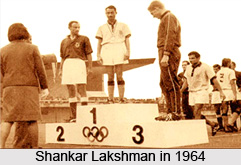 This eminent Indian field hockey player, Shankar Lakshman spent all his retired life there until his death in 2006. He died on the 29th April, 2006. The people of Mhow were aghast to learn a month before his death that he was suffering from gangrene in one leg. Doctors suggested surgical removal of the portion being affected. But the Lakshman family refused and preferred for alternative therapy. They went to the former cricketer and a healer who uses traditional herbal remedies, he was going to Ramesh Parmar. The people of this small town who were very proud of him also loved Shankar Lakshman so dearly. He was and will always remain, for them, one of the few genuine heroes that their small town has produced. He was awarded the Arjuna Award in 1965 and the Padmashri in 1967.
This eminent Indian field hockey player, Shankar Lakshman spent all his retired life there until his death in 2006. He died on the 29th April, 2006. The people of Mhow were aghast to learn a month before his death that he was suffering from gangrene in one leg. Doctors suggested surgical removal of the portion being affected. But the Lakshman family refused and preferred for alternative therapy. They went to the former cricketer and a healer who uses traditional herbal remedies, he was going to Ramesh Parmar. The people of this small town who were very proud of him also loved Shankar Lakshman so dearly. He was and will always remain, for them, one of the few genuine heroes that their small town has produced. He was awarded the Arjuna Award in 1965 and the Padmashri in 1967.









